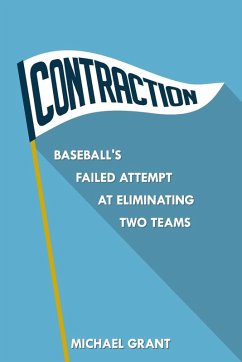In the five-year period from 1995 through 1999, revenues in baseball as a whole had doubled. But the revenue growth was disproportionately higher among large market teams and teams that had recently opened new ballparks. In baseball's salary cap-less economic structure, massive gaps in player payroll between high revenue and low revenue clubs resulted in competitive balance issues. Major League Baseball Commissioner Bud Selig and the team owners decided after the 2001 season that the best way to combat this issue was to eliminate it's two lowest revenue clubs, the Montreal Expos and the Minnesota Twins. This strategy wouldn't go as smoothly as baseball had anticipated. Poor planning from the outset coupled with a lawsuit in Minnesota and a three-owner franchise swap between the Expos, Florida Marlins, and Boston Red Sox orchestrated by Commissioner Selig doomed contraction. This is a story of greed and failure in one of North America's major sports leagues.
Hinweis: Dieser Artikel kann nur an eine deutsche Lieferadresse ausgeliefert werden.
Hinweis: Dieser Artikel kann nur an eine deutsche Lieferadresse ausgeliefert werden.








